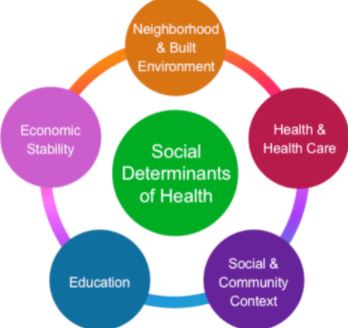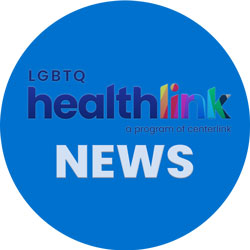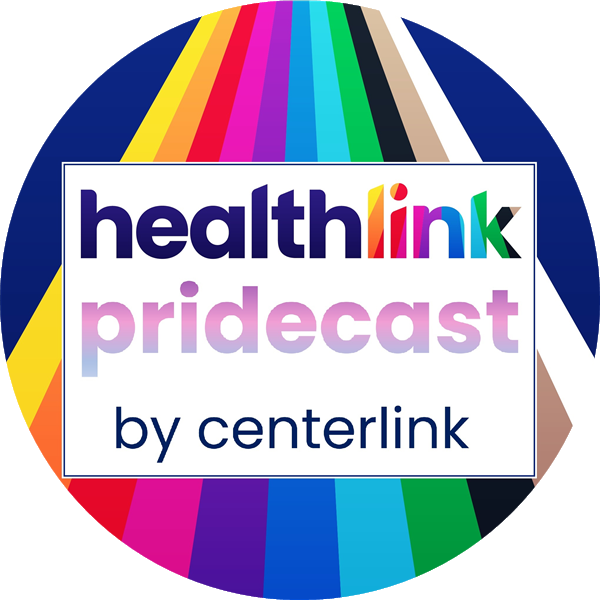All of Us Explores Social Determinants of Health – #LGBTWellness Roundup

LGBT HealthLink, 12/3/2021
All of Us to Explore Social Determinants of Health
The All of Us research program announced that it would begin a new survey looking specifically at social determinants of health – or socioeconomic factors like housing, employment, and discrimination that research suggests account for one-third to one-half of our health outcomes as individuals. Social determinants of health are especially important for understanding the needs of populations like LGBT communities, who face stigma and unique barriers to social participation that impede health outcomes. All of Us includes questions about sexual orientation and gender identity, and has conducted specialized outreach to LGBT communities in the hope of improving the available data on our health. They expect the new social determinants of health data to be available for researchers to analyze and report by mid-2022.
Join the All of Us research program and help improve our knowledge of LGBT health at http://joinallofus.org.
Update on NIH Diversity Efforts
In related news, NIH published an update on its efforts to increase the diversity of the scientific workforce, including addressing structural racism through the NIH UNITE initiative. Other updates include creating a new diversity and inclusion position within the National Institute of Biomedical Imaging and Bioengineering (NIBIB), for which a candidate search is now underway. The director of NIBIB also mentioned the All of Us research program as one of the initiatives helping to steer NIH and the scientific community more broadly on addressing health among diverse populations, such as the LGBT community.
Evaluating an Online Chat Platform for Youth
Prevention Science published a study on Q Chat Space, the online LGBT youth support system led by CenterLink, which found that meeting online was widely accepted by youth who tried it. Reasons for joining the program included wanting to meet other LGBT youth and needing a safe place to talk. Mental and emotional health was the most desired topic for groups chats, with about 44% of participants naming that as their preferred topic, while 33% were looking for groups specifically for gender minority youth and 28% wanted to receive sexual health education. Learn more about Q Chat Space here.
Some Colleges Not Ideal for LGBT Students
On the subject of safe spaces for youth, USA Today shared a new report finding that 150 colleges and universities were institutions that LGBT students should avoid. Reasoning includes their track record on LGBT issues generally, whether they have sought religious exemptions from nondiscrimination laws, and whether they opposed the Supreme Court’s Bostock case that extended many nondiscrimination laws to include LGBT individuals.
State Department Issues “X” Marker Passport
The Washington Post reported that the U.S. State Department has for the first time issued a passport with a nonbinary “X” marker instead of an “M” for male or “F” for female. The Department had announced in June that it would begin to issue such markers – as well as no longer require medical certification for M and F marker changes – and the X marker will still not be available for the general public until starting in 2022, when it will be incorporated as an option in passport application forms. Advocates hailed the move as critical for many intersex, nonbinary, transgender, and other sexual and gender minorities who may wish to have an X marker to be able to safely travel, access services, and protect their privacy.
Mental Health Across the Lifespan
The American Journal of Preventive Medicine published a study finding that suicidal thoughts, plans, and attempts were more common among LGB adults, compared to their non-LGB peers, across age groups, races, and ethnicities, in keeping with previous studies. Interestingly, these mental health issues decreased less over the lifespan for gay and bisexual men than they did for all other groups, suggesting a need for sustained mental health support for this group as it ages. Black women also had lower rates of these issues than White women, regardless of sexual orientation.
HPV Vaccination among Queer Australian Men
Frontiers in Public Health published a study examining HPV vaccine uptake among sexual minority men in Australia. Researchers found that slightly less than half (47.8%) of eligible patients at a sexual health clinic received their first dose of the three-dose HPV vaccine regimen, but that only about two-thirds of that number (or 30.3% of the full population) completed all three doses. They also found that gay men were about twice as likely as bisexual men to complete the three doses, and that men living with HIV were more likely than those who were not living with HIV and also not on PrEP to receive the full vaccine (although those not living with HIV but who were on PrEP did not have the same gap).
Health of LGBT American Indian and Alaska Native Adults
NBC News reported on a study finding that LGBT American Indian and Alaska Native (AIAN) adults face various health disparities compared to their non-LGBT peers, as well as the US population at large. For example, 42% of LGBT AIAN adults have been diagnosed with depression compared to less than a quarter of non-LGBT AIAN adults and less than seven percent of the overall population. They also reported higher levels of economic insecurity and victimization.
Nine in Ten LGBT Adults Vaccinated
HRC published new research finding that more than 90% of LGBT adults were fully vaccinated, far surpassing the national rate for all adults, with max vaccination sites being the most popular way of getting vaccinated. LGBT adults also seem to have been hit harder by the pandemic and to be more in need of vaccination, with 21% of LGBT folks reporting that they had experienced COVID-19 related illness during the pandemic compared to 14% of all adults nationally.
Case Grows for Equal Fertility Treatment
Reuters reported on a case filed by sexual minority women in New York against the insurance company, Aetna. They say that the company is discriminating against LGBT patients because fertility benefits are far more difficult to access for same-sex couples, who must pay for up to a year of intrauterine insemination out-of-pocket before benefits kick in. The new lawsuit joins one filed earlier in the year by students, who also say the plan’s policies violate New York’s antidiscrimination laws.
BBC Accused of Transphobic Reporting
Pink News reported on a growing controversy in the UK, where the BBC ran a story about cisgender lesbian women being preyed upon by transgender women, seeming to pit the LGBT community against itself. The story exposed anti-trans elements within the LGBT community but also the role of the media in responsibly reporting on LGBT (and especially transgender) issues. Many cisgender lesbian women took to social media to shoot down the idea of transgender people as predators, which some say harkens back to old stereotypes about gay individuals.




